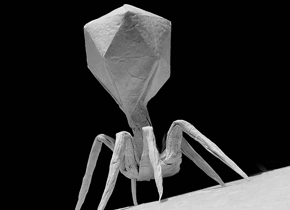 After careful consideration of all of the data on the genetic intestinal microflora, Scientists have discovered a new type of DNA cluster, which has 97 000 base pairs. He was put in charge of almost all the samples for research.
After careful consideration of all of the data on the genetic intestinal microflora, Scientists have discovered a new type of DNA cluster, which has 97 000 base pairs. He was put in charge of almost all the samples for research.
Although this is a completely new kind of cluster, but it refers to one of the most popular virus, and an existing database of information about it is not available.
Scientists have devoted considerable time and attention to the study of this type of virus and found, it relates to bacteriophages. Most of the many shocking, it is already quite a long time widely spread in the human gut.
Besides, bacteriophage in 6 times more common compared to other intestinal viruses of the same type. Therefore, scientists began to scrutinize metagenom people and found, that the virus become ill, almost everyone. On the basis of all the data, It can be assumed, that the virus has developed throughout the history of human development.
Because bacteriophage were identified during the research, conducted "krAssfag" program, therefore it was named in his honor. scientists explain, that the virus was discovered recently, but its coding genes and proteins studied and known for a long time.
It is assumed, krAssfag that originated from Bacteroides (Bacteroides). To date, A group of scientists are actively engaged in the study of the virus. As well as its development and forms in different bowel diseases.









Leave a Reply